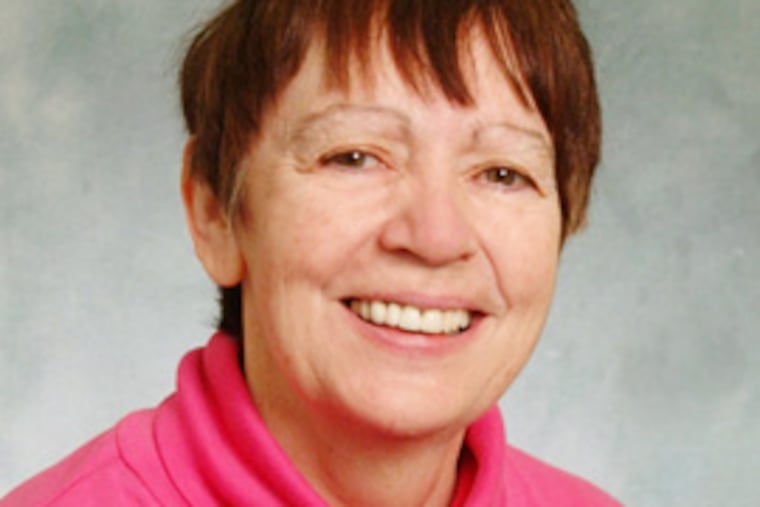Hazel Murphy, 82, a pioneer in neuroscience at Drexel, dies
A respected researcher and educator who helped develop and expand the program that became Drexel University’s Department of Neurobiology and Anatomy, she died March 20 after a stroke.

Dr. Elizabeth Hazel Murphy, 82, a respected researcher and educator who helped develop and expand the program that became Drexel University’s department of neurobiology and anatomy, died March 20 after a stroke.
Born in Wales, Dr. Murphy, who went by “Hazel,” trained as a classical pianist in her early professional life, graduating from London’s prestigious Royal Academy of Music in 1957. But she soon pivoted to follow interests in psychology and neurology, eventually graduating from the University of London with bachelor’s and doctoral degrees in psychology and completing a postdoctorate fellowship in neurology at Stanford University.
After a stint in the University of Chicago’s behavioral sciences department, she took a position as an associate professor at the Medical College of Pennsylvania, which would eventually merge with Drexel University.
Dr. Murphy quickly became a leader in what was then known as the department of anatomy, pioneering a robust neuroscience curriculum that became a focal point for the department. She served as acting chair of the department between 1989 and 1992. Dr. Murphy’s research — she published more than 130 papers over her career — focused on the visual system.
“Hazel made seminal discoveries in neuroscience with respect to development of the visual system and wiring of the brain. She was an innovator in designing sophisticated experiments to ask questions remaining to be addressed. Fundamental questions,” Kenny Simansky, Drexel College of Medicine’s senior vice dean for research, wrote in an email. “She was a true leader, whether she had the mantle of a leader’s title or not at any particular moment.”
Itzhak Fischer, the chair of Drexel’s neurobiology and anatomy department, said he valued Dr. Murphy as a gifted academic — and a devoted friend and parent.
In her late 50s, Dr. Murphy noticed a sign while driving near Lankenau Hospital, encouraging people to consider adoption. “It really sparked her interest,” said her son, Ruslan Murphy. “She wanted to give life to someone.”
Eventually, as a single mother, Dr. Murphy would adopt Ruslan and a daughter, Kristina, from a Siberian orphanage. Both had high-risk medical conditions, but under her care, they thrived, Fischer said. “My sister and I were considered high-need — no one was adopting from there,” Ruslan Murphy said.
Though her career took her away from playing music professionally, Dr. Murphy never lost her passion for music, playing the piano regularly and taking her son to concerts, operas, and the theater, he said. “She loved to go to the [televised simulcasts] of operas, because they would show clips behind the scenes,” he said. “It was a huge part of the way she raised me, to love opera, to love classical music.”
In her later years, Dr. Murphy married Tony Twyman, whom she’d dated while in college at the University of London. They reconnected toward the end of her life, Ruslan Murphy said. “He was a brilliant man — graduated first of their class,” he said. “My mom loved him very much.”
Tragedy struck Dr. Murphy and her family in 2018 when Kristina, who suffered from the autoimmune disease vasculitis, died in her early 20s. Dr. Murphy was devastated, her son said. She found solace in her relationship with Kristina’s daughter, Tala, her only granddaughter. “They were two peas in a pod,” Ruslan Murphy said.
Fischer said some of his fondest memories of Dr. Murphy are in the years after she adopted Kristina and Ruslan. “Despite all the skepticism of everyone else, those were the days of hope and excitement,” he said. “To see them running in the yard with the dog, Kristina and Rus — those are memories I hold on to. She fulfilled her dreams.”
In addition to her son and granddaughter, Dr. Murphy is survived by a sister, Gill. Her husband died earlier.
Dr. Murphy donated her body to the Human Registry of Pennsylvania. Drexel’s neurobiology and anatomy department is planning a memorial service later this spring to celebrate her life.